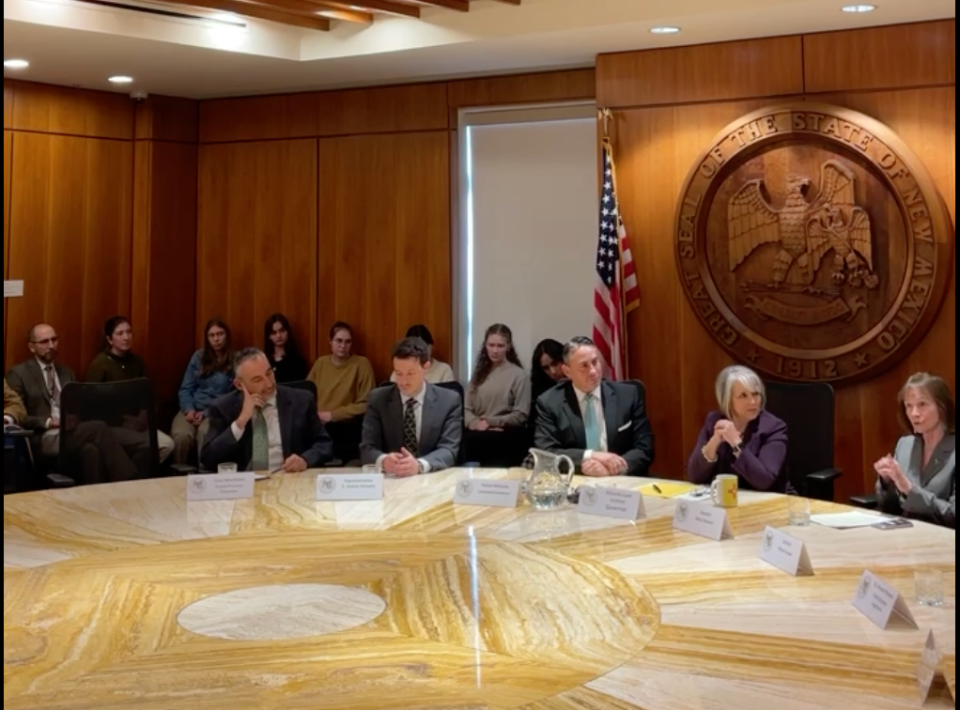Gov. Lujan Grisham signs HB171 into law modernizing graduation requirements
- Oops!Something went wrong.Please try again later.
High school students will soon have some flexibility when taking required courses for graduation.
Gov. Michelle Lujan Grisham signed House Bill 171 into law on Feb. 9 which will keep the required minimum credits for high school graduation at 24 but allow students the option of replacing some English, mathematics and science units with approved dual credit, work-based or career technical education courses that align with a student's individual educational goal.
The new law, which passed with bipartisan support, also removes an existing Algebra II math requirement to allow room for students to take more financial literacy courses instead.
“High school should be about preparing students for the real world while providing more opportunities to pursue their unique interests and future careers,” Lujan Grisham said in a news release. “These changes will lead to more young New Mexicans staying engaged in school, graduating, and continuing that success in their adult lives.”

Lujan Grisham held a press conference on Feb. 9 and said the changes wouldn’t add or change any credits to include financial literacy, but rather have it embedded in other areas of curriculum like social studies which will now require four full years with government and economics no longer being offered as half credits.
Rep. Andrés Romero (D-Albuquerque) and Sen. William Soules (D-Las Cruces), chairmen of the house and senate education committees, have worked in previous legislative sessions to revamp graduation requirements to fit the needs of students. Both said this bill helps better prepare students for the workforce or higher education while keeping them engaged in their education.
“By providing our students with greater flexibility and control over their course load, we can better engage them, increase their graduation rates, and more effectively prepare them for life after high school,” Romero said in a news release. “House Bill 171 will help chart the path forward for students interested in the trades, giving them a head start to a successful career and helping New Mexico staff up these in-demand fields.”
Soules, who was present at the governor’s press conference, had this to say after the bill was signed into law: “We worked on this with Chairman Romero for more than four years. When it first started it clearly wasn’t ready and I think we’ve made it a better bill with each iteration … it gives districts the flexibility for local options. Of our 89 districts, we have rural micro districts to big urban districts, and the needs for students within those districts are very different.
“I think this has a nice balance between requirements and flexibility so that it can really serves the students of New Mexico.”
As Soules briefly noted, another change outlined in the new law allows school districts to add two units of their own for their graduation requirements. Any additional requirements would have to meet the Public Education Department’s curriculum standards.
No other notable graduation changes were made in the bill. The new law takes effect in the 2025-2026 school year and is the first update to high school graduation requirements since 2009.
Ernesto Cisneros is a reporting fellow with the UNM/NM Local News Fund program. He covers education for the Sun-News and can be reached at ECisneros@lcsun-news.com. Follow him on X, formerly Twitter at @_ernestcisneros.
This article originally appeared on Las Cruces Sun-News: Michelle Lujan Grisham signs new high school graduation requirements into law

